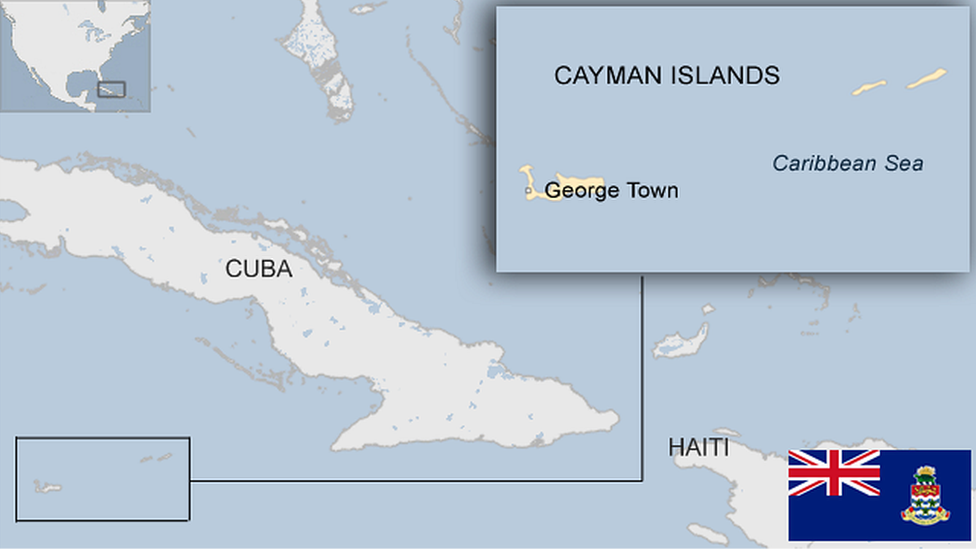Cuba country profile
- Published
This page is no longer being updated. It was last updated on 29 August 2023
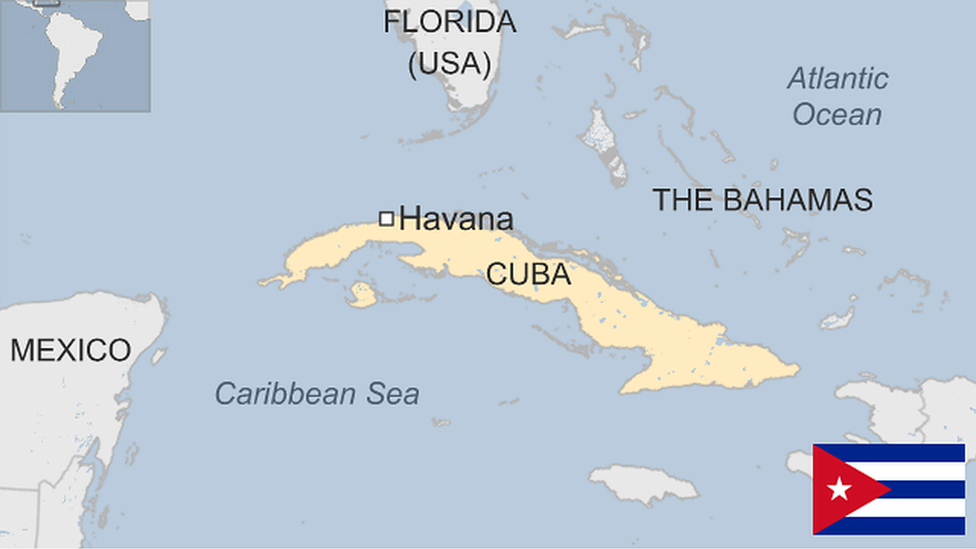
Cuba's Communist government has survived decades of US sanctions originally intended to topple its first leader Fidel Castro.
It also defied predictions that it would not survive the collapse of the Soviet Union.
Since the fall of the US-backed dictatorship of Fulgencio Batista in 1959, Cuba has been a one-party state led by Mr Castro and his successors .
Exploiting the Cold War, he was for decades able to rely on strong Soviet backing, including annual subsidies worth up to $5bn, and succeed in building reputable health and education systems.
The US and Cuba agreed to begin a process of normalising relations in 2014.
Read more country profiles, external - Profiles by BBC Monitoring, external
REPUBLIC OF CUBA: FACTS
Capital: Havana
Area: 109,884 sq km
Population: 11 million
Languages: Spanish, plus Haitian Creole, English
Life expectancy: 75 years (men) 80 years (women)
LEADER
President: Miguel Diaz-Canel
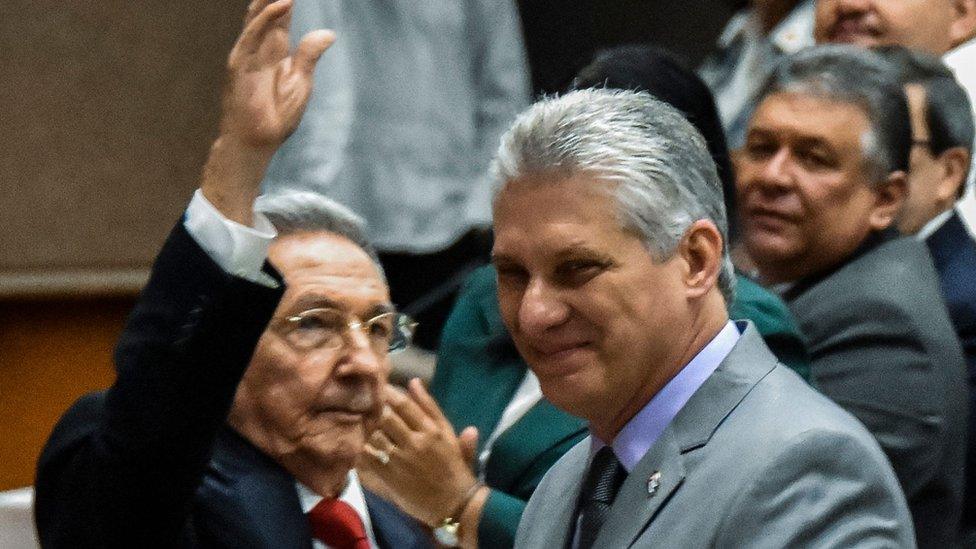
Miguel Diaz-Canel, right, took over from Raul Castro, left
Miguel Diaz-Canel became president in April 2018 in a handover ending six decades of rule by the Castro family.
Mr Diaz-Canel, aged 57 at the time of his inauguration, is a former engineer who was born after the revolution that brought Fidel Castro to power.
He has promised to maintain the island's one-party system after being chosen as president by parliament.
MEDIA
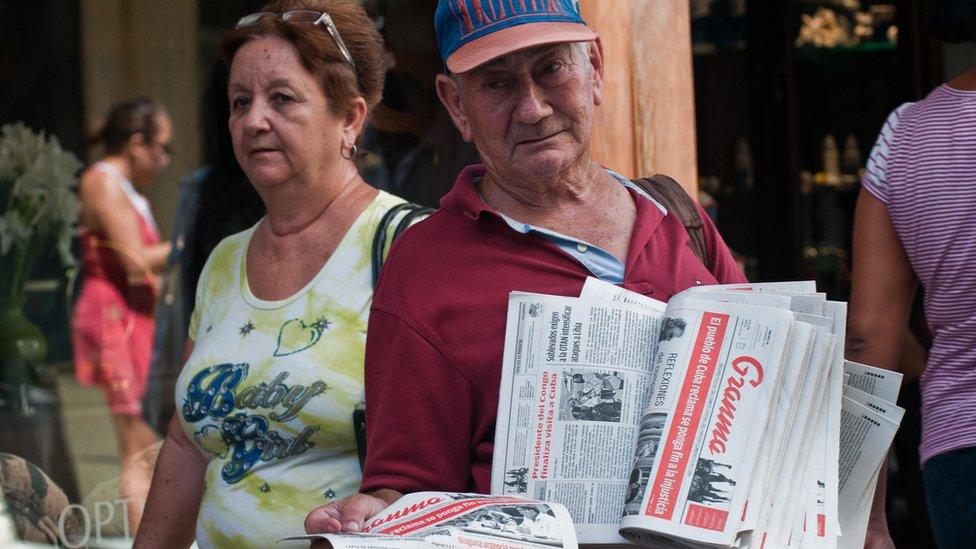
Cuba has the most repressive media environment in the Americas, says Freedom House. Almost all traditional media are state run.
Online access is tightly controlled and prohibitively expensive. Many Cubans use "the Package" - a digest of digital content distributed on USB sticks.
TIMELINE
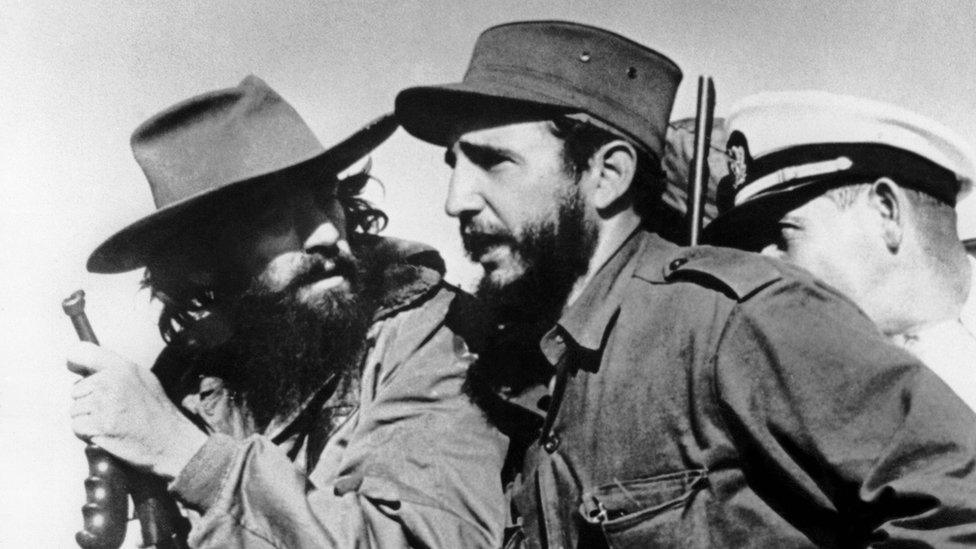
Fidel Castro became one of America's most notorious bogeymen and target of numerous US assassination plots
Some key dates in Cuba's history:
1492 - Christopher Columbus claims Cuba for Spain.
1511 - Spanish conquest begins under the leadership of Diego de Velazquez.
1526 - Importing of slaves from Africa begins.
1762 - Havana captured by a British force. It is returned to Spain a year later.
1868-78 - Ten Years War of independence ends in a truce with Spain promising reforms and greater autonomy - promises that were mostly never met.
1886 - Slavery abolished.
1895-98 - Jose Marti leads a second war of independence; US declares war on Spain.
1898 - Cuba is ceded to the US after US victory in the Spanish-American War.
1902 - Cuba becomes independent under the protection of the US.
1933 - Sergeant Fulgencio Batista seizes power in a coup.
1953 - Fidel Castro leads an unsuccessful revolt against the Batista regime.
1956 - Castro lands in eastern Cuba from Mexico and takes to the Sierra Maestra mountains where, aided by Ernesto "Che" Guevara, he wages a guerrilla war.
1959 - Fidel Castro leads a guerrilla army into Havana, forcing Batista to flee.
1961 - US breaks off diplomatic relations in response to the nationalization of US-owned properties, and later imposes a complete commercial embargo.
The US sponsors an abortive invasion by Cuban exiles at the Bay of Pigs; Castro proclaims Cuba a communist state and begins to ally it with the USSR.
1962 - Cuban missile crisis. Fearing a US invasion, Castro allows the USSR to deploy nuclear missiles on the island. The crisis is subsequently resolved when the USSR agrees to remove them in return for the withdrawal of US nuclear missiles from Turkey.
1975 - Castro sends troops to Angola to help fight rebels backed by South Africa. It is the start of 15 years of war in which 300,000 Cubans will fight.
1975-81 - Cuba sends troops to help Angola's left-wing MPLA fight opposing South African, Unita and FNLA forces. Later Cuban troops help the Ethiopian regime against the Eritreans and Somalis.
1988 - Cuba agrees to withdraw its troops from Angola following an agreement with South Africa.
1991 - The Soviet Union, Cuba's biggest benefactor, collapses, triggering an economic crisis.
1994 - Cuba signs an agreement with the US under which the US agrees to admit 20,000 Cubans a year in return for Cuba halting an exodus of refugees.
2002 - Prisoners taken during US-led action in Afghanistan are flown into the US base at Guantanamo Bay for interrogation as al-Qaeda suspects.
Russia's last military base in Cuba closes.
2006 - Fidel Castro provisionally turns over power to brother Raul Castro, who becomes president in 2008.
2014 - US President Barack Obama and President Castro announce moves to normalise diplomatic relation.
2016 - Fidel Castro, former president and leader of the Cuban revolution, dies at the age of 90.
2018 - Senior Communist Party stalwart Miguel Diaz-Canel becomes president, ending six decades of rule by the Castro family.
2023 - Acute fuel shortages force cancellation of Cuba's May Day parade against a backdrop of economic challenges including food insecurity, inflation and electricity blackouts.
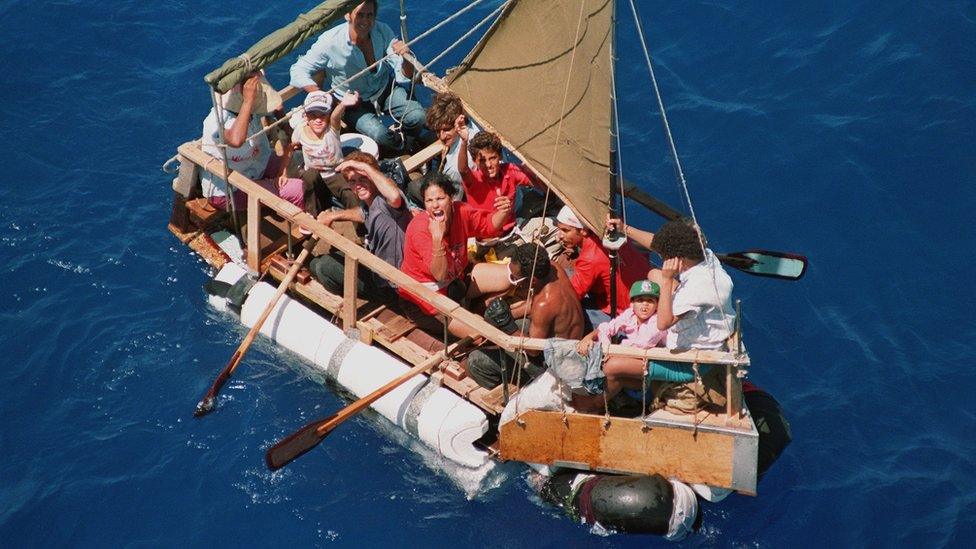
Thousands of Cubans have tried to flee their island in flimsy craft
- Published4 October 2024
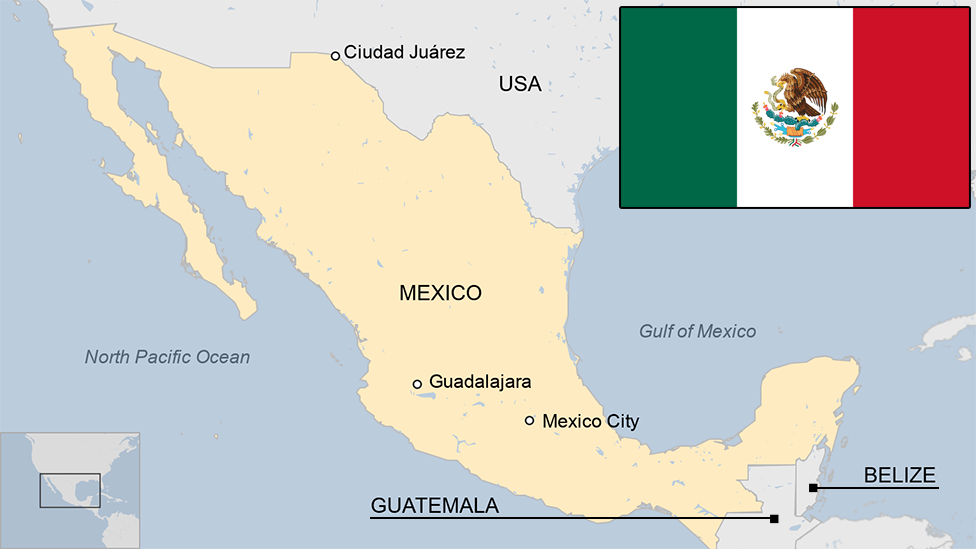
- Published21 January
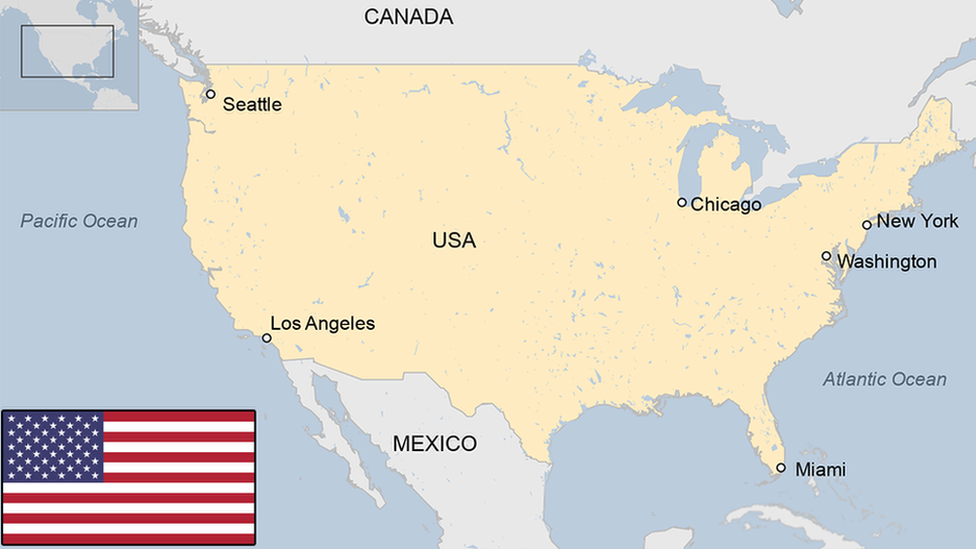
- Published4 August 2023
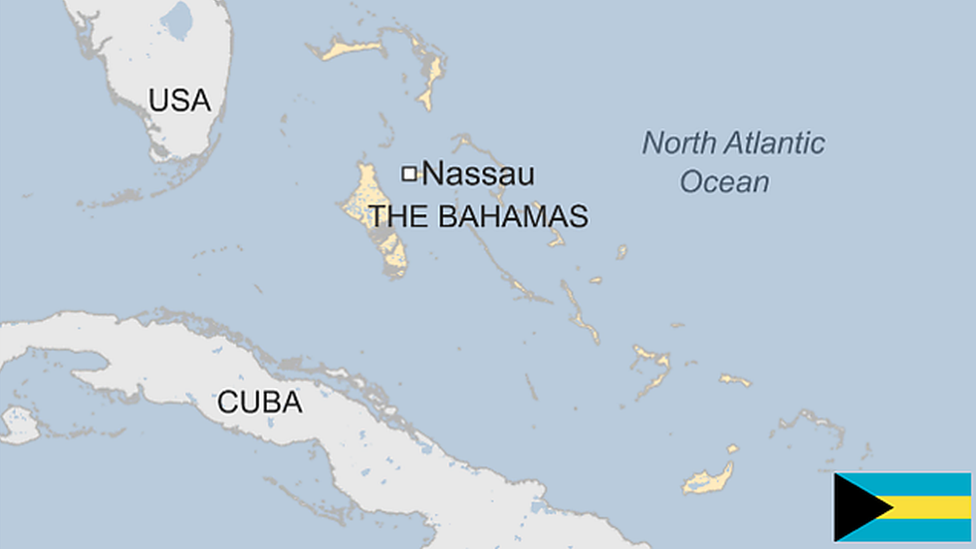
- Published31 March 2023
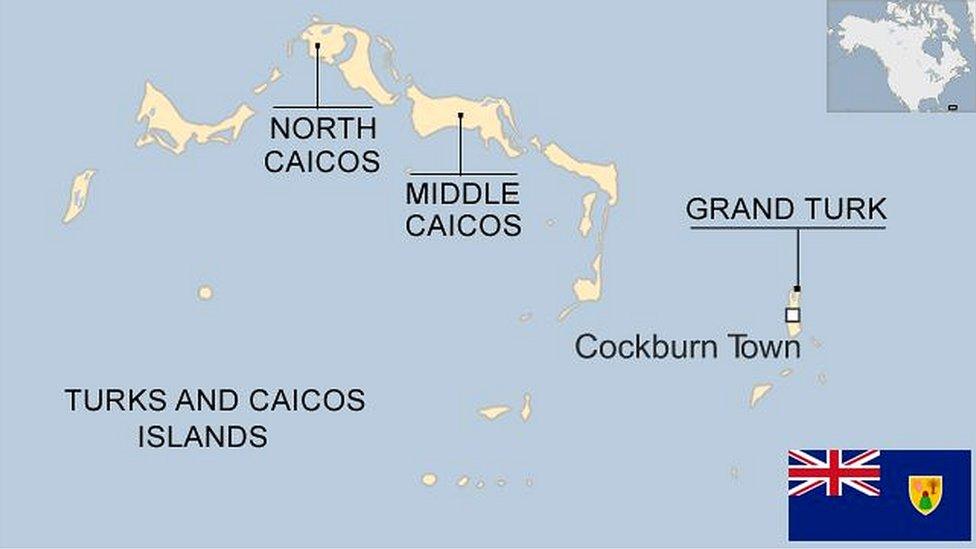
- Published21 May 2024
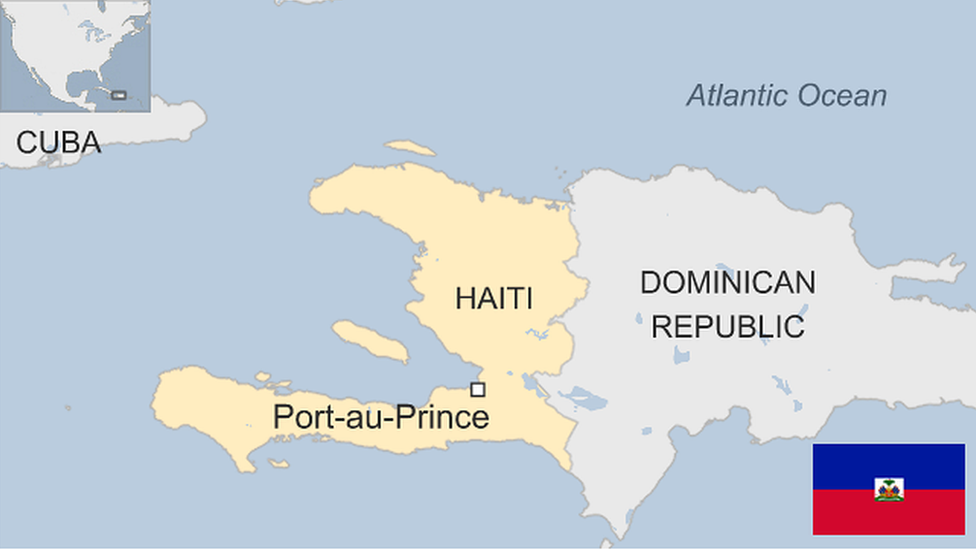
- Published2 April 2024
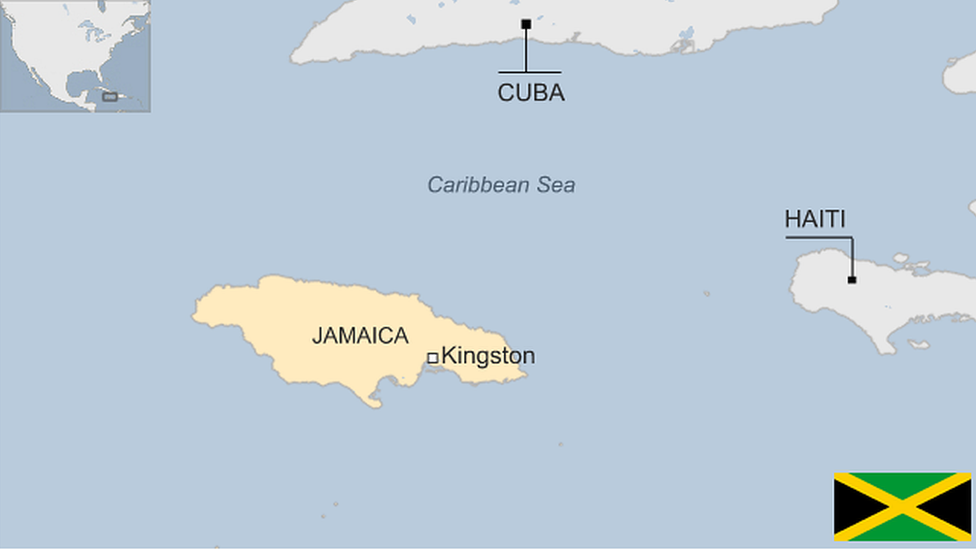
- Published27 March 2023
